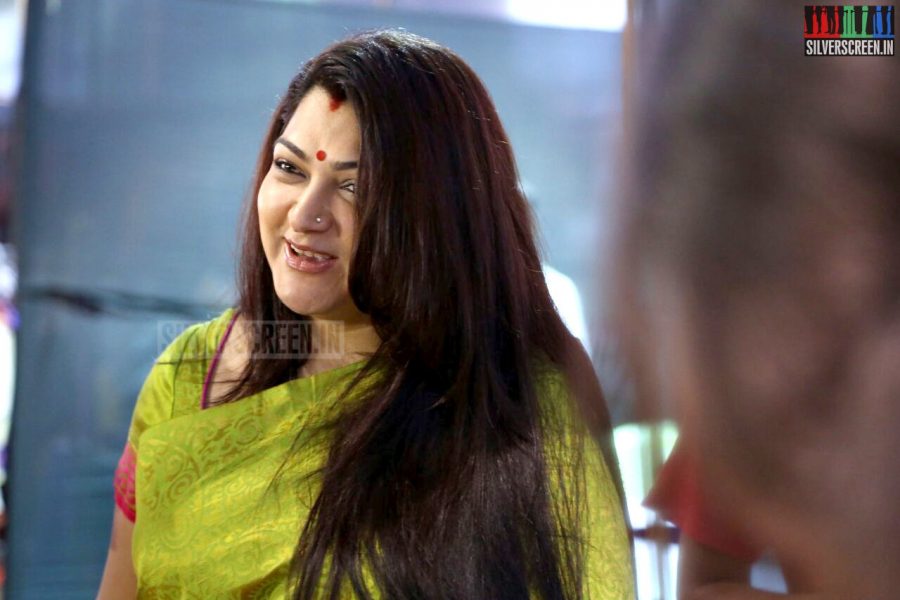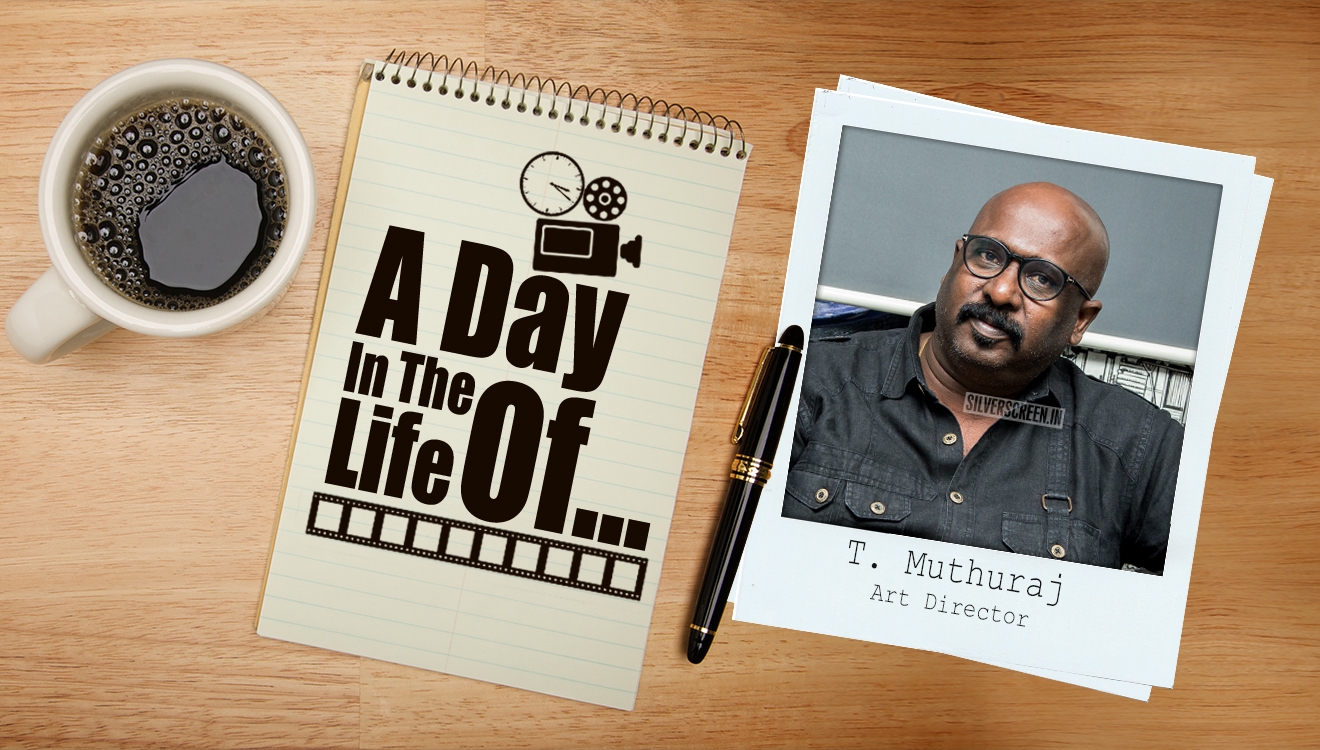In an interview with TV channel Pudhiya Thalaimurai, actress Khusboo Sundar said that cinema does not inspire violence against women and that Tamil film heroes do not harass the heroine when she rejects them. Her comments come in the wake of an outcry against Sivakarthikeyan’s film Remo, which has been criticised for glorifying stalking and harassment of women. The criticism resulted in an online petition on change.org and urges citizens to boycott Remo. The petition had nearly 3,000 signatories at the time of publication.
Social media users disagreed with Khushbu’s statement that heroes only chase women in “nice and positive ways”. Some pointed out that Khushbu’s own film Singaravelan (1992) depicted her being stalked and pursued by Kamal Haasan’s character :
@dhanyarajendran @khushsundar u think it’s ok 2 stalk n harass like in singaravelan?
— Vinod Vijayakumar (@Vindoz) October 30, 2016
Another user pointed out that in the 2014 film Amara Kaaviyam, the hero stabs his girlfriend when she says she doesn’t love him anymore:
@dhanyarajendran ask @khushsundar what did AMARA KAVIYAM hero do to his girlfriend @madarassi https://t.co/DtE4zyvKTu
— agoyr (@agoyr) October 30, 2016
Other Bollywood and Kollywood films with a similar theme include Darr, Deewangee, Saawariya, Tere Naam, and Ranjhana.
***
When asked about how cinema influences society, Khusboo said, “I do accept that cinema shows men stalking and chasing women for love, but does it ever happen in any movie that when a woman rejects the man’s love, he stabs and kills her, throws acid on her or harms her in any other way? No. Till the girl accepts his love for her, he only pursues her in nice and positive ways. He does not force her.”
Sivakarthikeyan had earlier said, “[The hero] is relentless in his approach towards a single girl just to make her reciprocate his love…he doesn’t move on, come what may, as his love is pure.”
The campaign takes issue with this understanding of “relentless pursuit” as love. Petition writer V Iswarya says, “[Sivakarthikeyan’s] failure to understand the notion of a woman’s consent is extremely troubling. Exactly what gives these men the authority to make decisions for another woman on her life choices?”
***
In fact, the crux of the campaign is that Tamil cinema fails to even understand concepts like misogyny and harassment.
Earlier in September, industry insider and Kabali director Pa Ranjith appeared to agree with this sentiment. Speaking to members of the All India Democratic Women’s Association (AIDWA) in Chennai, he said that Tamil cinema rarely treats women as human beings in films. He also said that Tamil cinema depicts women who are open about their sexuality as villains. Further, he said that films often indulge in victim blaming, with heroes routinely instructing women on how to dress and behave if they want to avoid harassment. This clip is one such instance:
Or for instance, the legendary Rajinikanth’s advice that “Pombalai pombalaiya irukkanum” (Women should know their place).
***
Recommended
Asked whether cinema has to take responsible measures with this issue, given it’s wide reach, Khusboo said that society often makes cinema its scapegoat, “As a society, we are failing, that is true, no one would disagree that. Instead of seeing where we fail, where we have lost out, the easiest thing to do is blame it on cinema.”
When asked if cinema could make a difference and be used as a medium to call out the issues of honor killings, she replied, “There are documentaries that talk about it. But how many watch it? Cinema is an exaggerated world. If everything which happens in cinema is taken seriously, then every movie, small or big, has the message that finally the hero always wins, the good will win over the bad – why don’t people take home that message?”
Recently, actor Vijay Sethupathi had also said that cinema could not be held responsible for crimes of passion. He said that those who commit such crimes may already have such intentions in them.
***
However, according to one viewer, “Most of these things [in Tamil cinema] are made to look like love because of their background score. Remove that and it’s clear that the woman would be running for her life.” Many criticised this scene from Baahubali for promoting “the dangerous idea that it’s romantic when men refuse to take “no” for an answer — that a woman’s “no” should be met with constant pressure to change her mind”.
The big question for both critics and proponents of Tamil cinema is this: To what extent can cinema be held responsible for real life violence and harassment?
While no cinema fan wants to return to colonial (or currently, Nihalani) styles of censorship, where watching cinema is equated with brainwashing, there appears to be increasing agreement that the romantic stalker formula (or relentless pure love formula) has become, at best, overused.
And that strong female protagonists whose words actually matter would be a refreshing change.
*****



